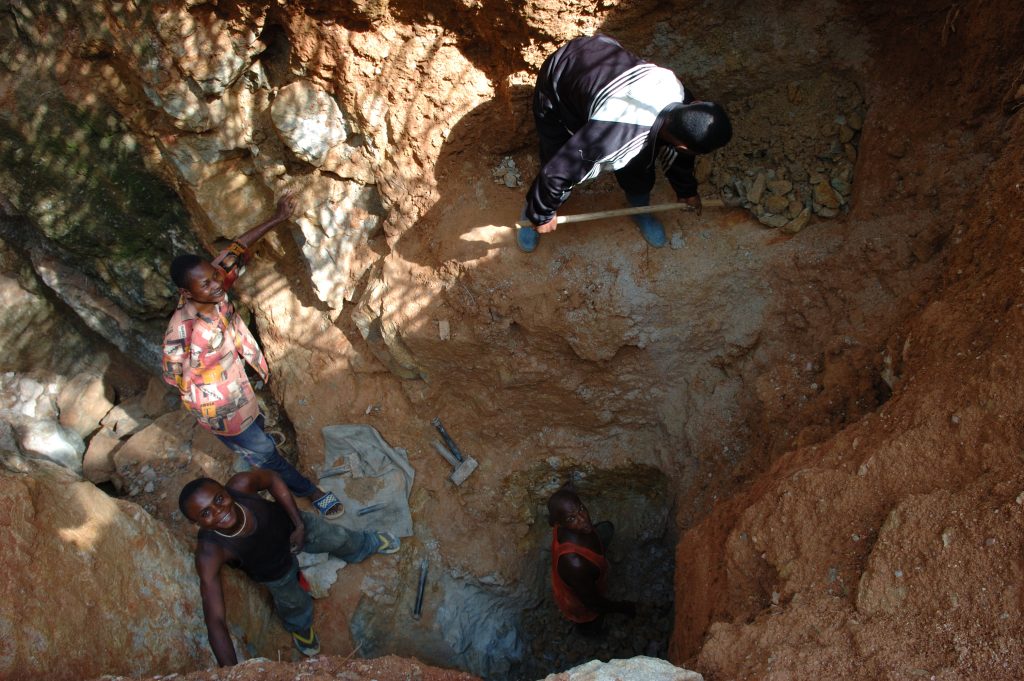Most cobalt, a metal needed to power electric cars, is found in Congo's soil.
You might not know it, but odds are cobalt plays a major role in your life. The metal is used to make batteries, and as such you’ll find it in smartphones and laptops and electric cars. This last use makes cobalt a key cog in many societies' plans to combat climate change. The UK, for example, wants all new cars to be zero-emisson by 2035. More electric cars means more cobalt needs to be mined. That is concerning to some people, because that industry has some pretty problematic components to it.
The vast majority of the world’s cobalt is mined in Congo, and a big chunk of Congo’s cobalt is produced by so-called ‘artisanal miners’. In the West, we often associate ‘artisanal’ with upmarket Etsy shops and farmers markets, but the small-scale and informal mining it describes is a dismal, difficult and dangerous form of work.
Poor safety regulations translate into frequent injuries and deaths, as tunnels collapse, fires break out, and pollution gets into the organs of workers, causing disease in both them and the children they sire. Large-scale corruption means workers are often extorted and exploited by bosses, foreign owners and government officials, while over a quarter of the mines employ child labour. For all this, the average salary of the estimated 200,000 Congolese who work as artisanal miners is only about $10 a day.
Increasingly, consumers of cobalt do not want to purchase goods produced in such an unethical manner. They have responded in a few different ways. Some companies have pledged not to use artisanal miners. Some have pledged not to get cobalt from Congo at all. Others, like Tesla, are looking for battery alternatives that do not use cobalt.
But there are a couple of issues with all these options. Firstly, it may be impossible to meet the world's demand for cobalt without artisanal Congolese miners, especially as increasing concern about climate change sends demand for the material skywards (the IMF thinks the world will be using 6x more cobalt by 2050). Secondly, not everyone is convinced that removing their source of income is really the best way to help Congo’s artisanal miners. That $10 daily wage is 5x the amount three-quarters of the country’s population live off.
An alternative to stepping away from Congo's artisanal mines would be to step forward and improve them. More companies could follow the lead of the few who currently do things like offering safety training to miners, or investing in infrastructure like schools so parents have an alternative to sending their kids to work.
Some people would prefer that instead of foreign companies, Congo’s government took on more of a role. (Although others worry about its human rights record.) The government says it is going to make things better by giving a state company a monopoly on cobalt. That would make it the only business that can sell the resource, which would allow it to set the prices, which in theory could give it extra cash to spend on higher wages and improving safety and so on. But not everyone has high hopes that this will happen: Congo ranked 162 out of 176 countries in the 2021 Corruption Perceptions Index produced by Transparency International.
Read our explainer on: resources in poorer countries

